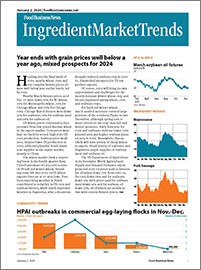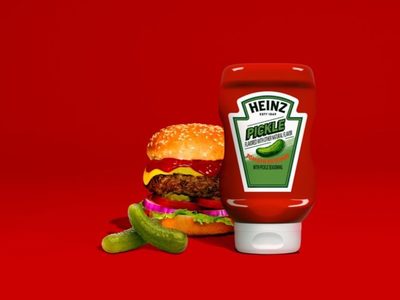WESTMINSTER, COLO. -- A technical platform that has steadily gained traction among quality assurance executives across the food industry rapidly is being embraced as a valuable tool for purchasing and research and development leadership, said Mike LaBosky, vice president of global quality for Bimbo QSR.
In an interview with Milling & Baking News, Mr. LaBosky described how companies like Bimbo QSR have come to rely on digital documentation networks such as TraceGains, a technology company based in Westminster, Colo.
Mr. LaBosky said he has been a TraceGains user for about eight years and called himself a fan of company’s original platforms and its subsequent enhancements. His background includes quality assurance assignments at Bimbo QSR and East Balt (as the business was known before the 2017 acquisition by Bimbo) as well as several other leading consumer packaged foods companies. Product lines he has overseen include baked foods, proteins, condiments, produce and protein.
He said TraceGains secured a foothold in the food and beverage industry through the digitization of supplier documentation. The platform introduction was followed by the development of modules offering related services.
“We use the supplier compliance module, and that helps us stay lockstep with our suppliers,” he said. “The platform, because it is digital allows you in basically in any audit setting, the ability to produce documents showing compliance. That’s everything.”
Bimbo QSR is baking for nearly every major quick- service restaurant chain on five continents, Mr. LaBosky said. With its large geographic footprint, the company sells products made at nearly 50 different baking plants
“Our customers have unique requirements,” he said. “Each of our customers expects our bakeries are GFSI certified (Global Food Safety Initiative — an umbrella group setting standards for various certification schemes). When you start looking at requisite programs and factoring in regulatory, quality and food safety aspects needed to meet GFSI standards, the ability to manage ingredients and suppliers is highly critical.”
Maybe 10 or 15 ago, managing the supplier documentation associated with meeting these standards was done through file cabinets and manila folders, Mr. LaBosky said. Access to the information was needed for auditor inspections regarding any number of topics from specifications or analyticals to proof of insurance.
“Invariably in those days, the document the auditor asked for was the one that was expired,” he said.
Bimbo QSR’s document portal today has over 30,000 unique documents relating to the company’s suppliers. Some are ingredient specific. Others are supplier specific. Examples include sustainability statements, sourcing statement, proof of insurance and audit results (GFSI compliance).
“This portal allows us to interface with our suppliers in real time to be sure all of our docs are up to date,” he said.
More recently, the platform has moved a step further with suppliers uploading certificates of analysis into the system. Bimbo is then alerted when an analytical sample does not fall within a preestablished range of contract specifications.
“This system is so much better than the way this used to be done,” Mr. LaBosky said.
TraceGains Market Hub, a more recent introduction “ties everything together,” he said, bringing research and development and purchasing into what had been a quality assurance system.
Amid the supply chain problems that emerged with COVID, many food companies have become acutely aware of reliance on single suppliers, sometimes in remote parts of the world, for individual ingredients. Technology like TraceGains and its Networked Ingredients Marketplace is being used to help diversify sourcing, Mr. LaBosky said.
“The world is a small place if there is good technology,” he said. “That’s what this is about.”
Beyond supply chain challenges, Mr. LaBosky said the system allows Bimbo QSR to respond quickly when customers are trying to develop new products on a short timetable.
“Part of this is getting new products to market quickly,” he said.
He explained that most of Bimbo’s QSR business is producing staple products, such as buns, in very large quantities.
“But nearly all of the LTO (limited-time offer) projects have unique ingredients,” he said. “We need to get that to market quickly. Yet we have to be compliant. That’s the power of the TraceGains integrated approach. Our formulators, R&D, and our purchasing people when they use the Market Hub as going to the supermarket ‘This is where we purchase our ingredients.’ We know the compliance documents are already there. Don’t buy something from someone not in this portal, because technically there could be a compliance risk. So if it’s about speed to market and compliance to make safe, quality food, having a platform like this is facilitates speed and compliance and customer satisfaction.”
TraceGains said 15,000 to 20,000 ingredient suppliers currently have a presence on its network. It said food company customers typically find “80% of their suppliers already on TraceGains network.”




